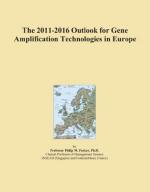|
This section contains 1,881 words (approx. 7 pages at 300 words per page) |

|
PCR (polymerase chain reaction) is a method used by scientists to increase the amount of purified DNA in a sample. It is a highly specific procedure that amplifies one particular gene from within a large sample of undesirable DNA, DNA that the scientist does not wish to replicate. Before PCR, it was very difficult and time consuming to obtain particular fragments of DNA from a sample, and practically impossible to amplify, produce many copies of, that fragment. With PCR, scientists can copy a specific stretch of DNA billions of times in a few hours.
PCR was invented in 1983 by American biochemist Kary B. Mullis, who received the 1993 Nobel Prize for chemistry (with Canadian biochemist Michael Smith) in recognition of this inestimable contribution to science. Mullis invented PCR while working for the Cetus Corporation, a biotechnology firm located in California. His discovery proved so essential to biological research that...
|
This section contains 1,881 words (approx. 7 pages at 300 words per page) |

|


